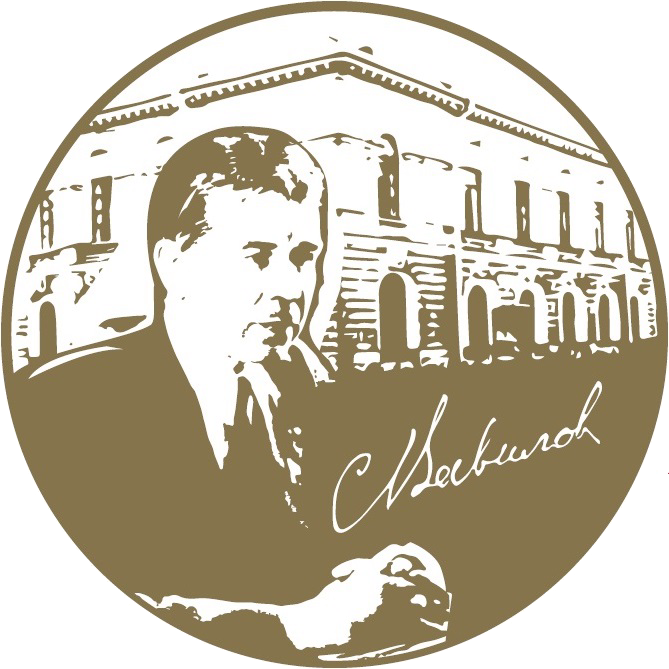
5-6 июля Центр социолого-науковедческих исследований СПбФ ИИЕТ РАН совместно с European Sociological Association и Sociology of Science and Technology Network проводят семинар Career Development in Academia.
Программа семинара:
European Sociological Association (ESA)
Sociology of Science and Technology Network (SSTNET)
&
Centre for Sociology of Science and Science Studies, Institute for the History of Science and Technology (IHST) of the Russian Academy of Sciences
Workshop
Career Development in Academia
St. Petersburg, 5 — 6 July, 2012
Workshop program
Workshop organizing and selection committee
Nadia Asheulova ● Centre for Sociology of Science and Science Studies, IHST, RAS (Russia)
Katarina Prpić ● Institute for Social Research of Zagreb (Croatia)
Harald Rohracher ● Institute for advanced studies on science, technology and society (Austria)
Aaro Tupasela ● University of Helsinki (Finland)
The Workshop is organised with financial support from ESA and the Presidium of St Petersburg Scientific Centre of RAS
Thursday 5th of July 2012
9.30 — 10.00 Opening and welcome: Yuri Baturin, Director of the IHST, Russian Academy of Sciences
Nadia Asheulova, Organizing Committee Chair
10.00 — 11.0 Keynote address: Paul Wouters, University of Leiden
11.00 — 11.30 Coffee break
11.30 – 13.00 Session one:
Academic careers – theoretical and comparative perspectives
Chair: Katarina Prpić
1. Izabela Wagner (Poland)
From ethnography to theory — new propositions in the research of careers: Coupling career, hidden career and transmobility
2. Maria Safonova & Mikhail Sokolov (Russia)
The decline of academic patronage networks: An exploratory comparative study
3. Fochler, Maximilian (Austria)
Lines of scientific life: Tracing scientists’ career narratives as an intertwinement of epistemic, institutional, societal (and many other) lines
4. Waaijer, Cathelijn J.F. (The Netherlands)
Issues in career policy in science as identified by Nature and Science editorials
13.00 – 14.00 Lunch
14.00 – 15.30 Session two:
Science system as the organizational framework of career development
Chair: Aaro Tupasela
1. Kivinen, Osmo & Hedman, Juha (Finland)
From university rankings to field-specific ratings of productivity of research: An input-output analysis of top-300 universities in the fields of natural sciences, technology and clinical medicine from 13 countries
2. Van Arensbergen, Pleun & Van den Besselaar, Peter (The Netherlands)
How evident is talent? The assessment of scientific talent in the allocation of research grants
3. Jokić, Maja; Letina Srebrenka & Zauder, Krešimir (Croatia)
The influence of the system of evaluation on the scientific career as measured by scientometric indicators: The example of Croatia
4. Romanienko, Lisa A. (Poland)
Commercial and cultural distortions of knowledge production in Poland: Can Hofstede and Bourdieu salvage innovation and creativity in S&T?
15.30 — 16.00 Coffee break
16.00 – 17.30 Session three:
Academic career development in changing social context
Chair: Nadia Asheulova
1. Popova, Irina (Russia)
Academic careers: Factors of development and turning points in the context of reforms in Russia
2. Carvalho, Teresa ; Branco Sousa, Sofia; Cardoso, Sónia (Portugal)
Changes in the institutional context and academic profession – A case from Portugal
3. Suleymanov, Abulfaz D. (Azerbaijan)
Sociological analysis of the transformation of higher education in Azerbaijan in terms of the Bologna process
4. Alakhverdyan, A.G. & Zheltova, E.L. (Russia)
The transformation of Soviet science into Russian science: Old and new trends of personnel policy
Friday 6th of July 2012
9.30 -11.00 Session four:
Scientific beginners — early academic careers
Chair: Nadia Asheulova
1. Müller, Ruth (Austria)
Expect the worst and strive for the best: Postdocs, career work and the affective governance of socio-epistemic relations in life science research groups
2. Groenvynck, Hans & Vandevelde, Karen (Belgium)
The Ph.D. track: Who succeeds, who drops out?
3. Brajdić Vuković, Marija (Croatia)
Mentoring of young natural and social scientist in Croatia
4. Marques, Ana Paula & Moreira, Rita (Portugal)
How the academia can (or not) change my life? Portraits of entrepreneurship potential among Portuguese’ graduates
11.00 — 11.30 Coffee break
11.30 – 13.00 Session five:
Human resources in academia
Chair: Katarina Prpić
1. Rosa, Alexandra & Bento, Sofia (Portugal)
Swapping the pipette by the e-mail: New science careers in Portugal: An exploratory study
2. Kumar, Naresh (India)
A comparative pattern of enrolment and PH. D. produced in India
3. Mandal, Kasturi & Banerjee, P. (India)
Research training in India: A city based analysis
4. Jiménez, Jaime; Escalante, Juan Carlos; Rodríguez, Carlos; Morales-Arroyo, Miguel Ángel (México)
A non-linear model for career development in academia
13.00 – 14.00 Lunch
14.00 – 16.00 Session six:
Career development and national context
Chair: Aaro Tupasela
1. Asheulova, Nadia & Dushina, Svetlana (Russia)
Research career development in Russia: The role of international mobility
2. Cruz-Castro, Laura; Alva, Kenedy and Sanz-Menéndez, Luis (Spain)
Academic career and tenure in Spanish Universities
3. Groboljšek, Blanka; Mali, Franc; Ferligoj, Anuška; Kronegger, Luka; Pustovrh, Toni (Slovenia)
The collaboration practices of Slovenian scientists and researchers
4. Prpić, Katarina & Petrović, Nikola (Croatia)
Can bibliometric data misevaluate sociologists’ and political scientists’ productivity impact and misdirect their career prospects?
5. Monastyrska, Galina V. (Ukraine)
Motives and incentives in a scientist’s career
16.00 – 17.15 Session seven
Gender differences in academic career development
Chair: Nadia Asheulova
1. Sagebiel, Felizitas (Germany)
Academic women leaders and their potentials as gendered organisational change agents
2. Te Kaat, Adriana; Vandevelde, Karen & Van Rossem, Ronan (Belgium)
Gender differences in the interest of Flemish students for research careers and scientific careers
3. Zinovyeva, Natalia & Bagues, Manuel (Spain)
Does gender matter for academic promotion? Evidence from a randomized natural experiment
17.15 – 17.30 Closing remarks: Katarina Prpić, SSTNET Chair
